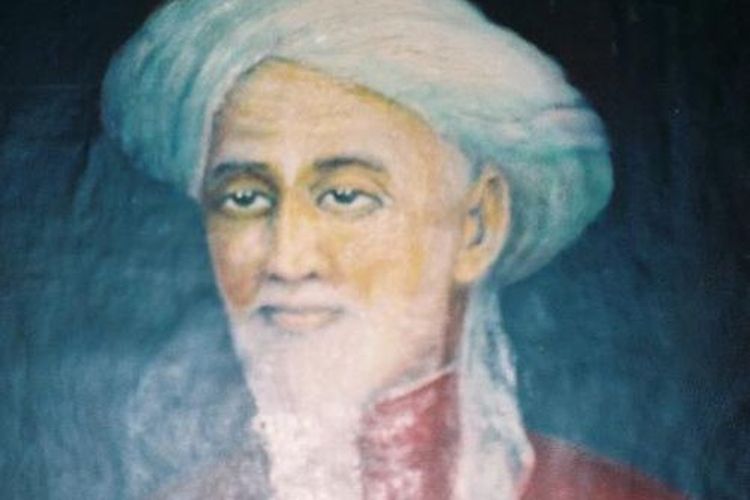In my previous writing, I discussed the efforts to understand God according to Sheikh Al-Banjari. This time, I will explore his thoughts on humanity. Who is unfamiliar with Sheikh Muhammad Arsyad Al-Banjari?
Sheikh Al-Banjari is a world-renowned scholar whose influence is forever etched in history. His contributions to the spread of Islamic teachings in the Nusantara continue to be developed today, particularly his teachings on Sufism. I will not revisit his biography here, as I have already covered it in detail in an earlier article.

Sheikh Arsyad’s intellectual journey, which extended across different countries, earned him deep respect from various circles. He was even entrusted by Sultan Tahmi Allah II to propagate Islam in Banjar, as at that time, even though the kingdom was Islamic, the faith had not yet flourished. Witnessing the spiritual dryness of Banjar, Sheikh Arsyad felt compelled to act. He began by building a religious center for study, and soon his following grew.
Sheikh Arsyad taught subjects such as Arabic-Malay literacy, Fiqh, grammar, Tawhid (Islamic monotheism), agricultural science, Tafsir (Qur’anic exegesis), Hadith, and much more. He was not only an educator but also a prolific writer. His most famous work, Sabil Al-Muhtadin Li at-Tafaqquhi fi Amri ad-Din, became widely known across Brunei, Pattani, and Malaysia. However, one of his lesser-known works, Kanzu Al-Ma’rifah, subtly discusses the nature of humanity.
Although Sheikh Arsyad did not systematically lay out his concept of humanity in Kanzu Al-Ma’rifah, we can discern certain key ideas about the origins of human existence from his writing.
Sheikh Arsyad proposed that everything in the universe, including human beings, originates from Nur Muhammad (the Light of Muhammad). Unfortunately, his book does not elaborate on the concept of Nur Muhammad, making it difficult to trace whether Sheikh Arsyad was influenced by the tasawwuf falsafi (philosophical Sufism) developed by figures like Abdul Karim al-Jilli and Ibn ‘Arabi, or by Islamic philosophers such as Al-Farabi and Ibn Sina.
The Nur Muhammad theory was not new in Sufism and philosophy. Long before Sheikh Arsyad’s time, this theory had been discussed, first introduced by Husayn Ibn Mansur al-Hallaj. It was also prevalent among certain Shia groups, having been articulated as early as the time of Imam Ja’far al-Sadiq. Al-Hallaj later incorporated it into his concept of philosophical Sufism. When compared to the ideas of philosophers like Al-Farabi and Ibn Sina, there is a striking similarity: both posit that the universe, including humanity, began with a first intellect (or akal) and evolved into the cosmos we know today. It is evident that Sheikh Arsyad’s views were influenced by both Sufi and philosophical thought.
In Sheikh Arsyad’s understanding, human existence on Earth is temporary, or majazi (illusory), while the only reality is God. He asserted that a person who can eliminate the attributes and ego from within themselves has a strong understanding of Tawhid and enters a state of fana (self-annihilation). To become a perfect human being, according to Sheikh Arsyad, one must achieve strong Tawhid and reach a state of fana. If an individual can rid themselves of self-centeredness, God will reveal to them the knowledge of Tawhid al-Zat—the understanding that nothing truly exists except Allah.
Sheikh Arsyad classified humanity into three groups: awam (common people), khawash (the elite), and khawash al-khawash (the elite of the elite). Those in the awam group perform acts of worship but still believe their deeds are the result of their own efforts. As a result, they often seek rewards, both in this world and the next. Their hearts are still entangled with desires and devotion, leading them to expect compensation for their worship, and if there is no promise of reward, they are reluctant to engage in it.
In contrast, the khawash are individuals who have renounced their ego and see their actions as a means of drawing closer to God. They worship without seeking rewards, performing acts of devotion purely for the sake of God. The final group, khawash al-khawash, comprises those who have fully annihilated their ego, worshipping with and for God alone. Only prophets can attain this station, as they have entirely transcended worldly desires and exist solely in God’s presence.
Sheikh Arsyad further explained that Tawhid al-Af’al (the oneness of actions) is the level of awam, Tawhid al-Sifat (the oneness of attributes) is the level of khawash, and Tawhid al-Zat (the oneness of essence) is the level of khawash al-khawash.
For those who cannot attain these levels, Sheikh Arsyad referred to them simply as makhluk (creatures). He elaborated that the connection between human actions and themselves is one of Nisbah Kasabiyah (the attribution of effort), while their relationship with God is one of Nisbah Khaliqiyah (the attribution of creation).
In conclusion, Sheikh Arsyad believed that God is the creator, and humans are merely agents of effort. To summarize his thoughts on humanity: First, the perfect human is one who reaches the station of khawash al-khawash. Second, those who still seek rewards for their deeds are the awam. Lastly, knowledge of both Sharia and reality is essential in fostering a close relationship between God and humanity.
References:
– Azyumardi Azra, Pendidikan Islam, Tradisi, dan Modernisasi Menuju Milienium Baru, Logos, Jakarta, 1999.
– Harun Nasution, Filsafat Agama, Bulan Bintang, 1985.
– Harun Nasution, Filsafat dan Mistisme, Bulan Bintang, Jakarta, 1978.
– Bayani Dahlan, Pemikiran Sufistik Syekh Muhammad Arsyad Al-Banjari, Pustaka Ulama, Yogyakarta, 2015.






